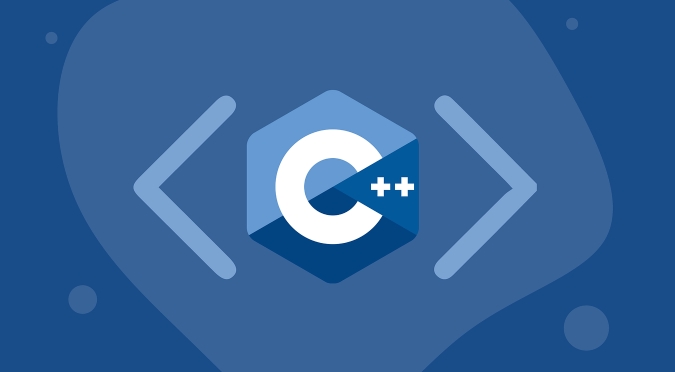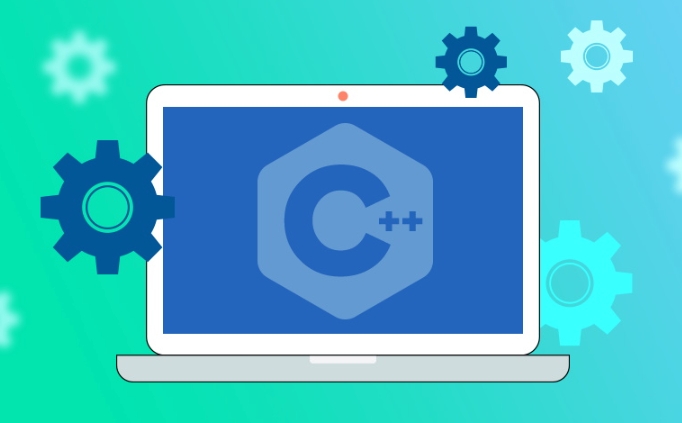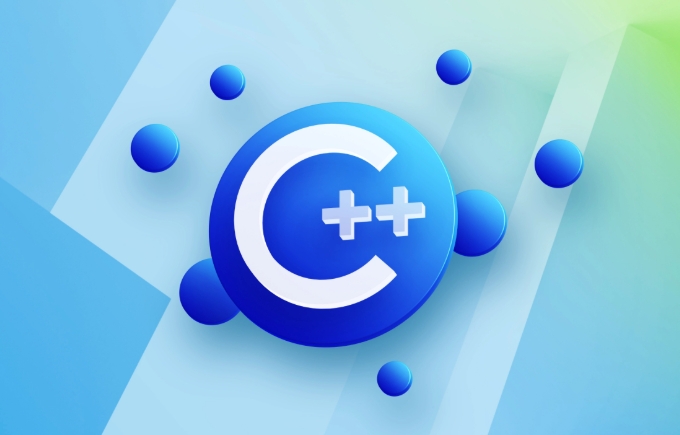Header file protection prevents header file content from being repeatedly included through preprocessor instructions, and avoids repeated definition errors. 1. Use #ifndef MYCLASS_H, #define MYCLASS_H and #endif to ensure that the header file is processed only once; 2. The macro name should be fully capitalized, including the project or class name, and ends with _H, separated by underscores to ensure uniqueness; 3. #pragma once can be used as a substitute, with a more concise syntax but not C standard, and slightly less portable; 4. Simple macro names should be avoided to reduce the risk of conflict, and unified naming specifications are required during collaborative development; 5. IDE or tools can automatically generate header file protection, and traditional macro guards are still a reliable choice for cross-platform projects.

In C, header guard is a common technique to prevent header files from being included multiple times. It ensures that the contents of the header file are processed only once in the same compilation unit through preprocessor instructions, avoiding compilation errors caused by repeated definitions.

Basic syntax example
// MyClass.h
#ifndef MYCLASS_H
#define MYCLASS_H
class MyClass {
public:
void doSomething();
};
#endif // MYCLASS_Hexplain
-
#ifndef MYCLASS_H: If the macroMYCLASS_His not defined, continue to execute the following code. -
#define MYCLASS_H: Define a macro namedMYCLASS_H, indicating that the header file has been included. -
#endif: End the conditional compilation block.
In this way, when the same header file is #include multiple times, the second and subsequent inclusions will skip the content because MYCLASS_H has been defined to prevent duplicate inclusions.
Naming suggestions
Macro names should be unique, usually using:

- All capital
- Includes project/class name
- Ending with
_Hor_HPP - Use underline to separate
For example:
#ifndef PROJECTNAME_MYCLASS_H #define PROJECTNAME_MYCLASS_H // Content #endif // PROJECTNAME_MYCLASS_H
This can reduce the risk of macro name conflicts between different projects.

Alternative: #pragma once
Modern compilers generally support a more concise way:
// MyClass.h
#pragma once
class MyClass {
public:
void doSomething();
}; #pragma once has the same function, but is more intuitive and less prone to errors. However, it is not part of the C standard (although widely supported), so traditional macro guards are still recommended in some projects that strictly require portability.
Tips
- Don't use too simple macro names, such as
#ifndef HEADER, which are prone to conflict. - If you use a build tool or multiple developers collaborate, it is recommended to unify the naming specification.
- Some IDEs or tools can automatically generate header guards.
Basically that's it. Using #ifndef / #define / #endif combination is a classic and reliable approach, especially suitable for learning and cross-platform projects.
The above is the detailed content of C header guard example. For more information, please follow other related articles on the PHP Chinese website!

Hot AI Tools

Undress AI Tool
Undress images for free

Undresser.AI Undress
AI-powered app for creating realistic nude photos

AI Clothes Remover
Online AI tool for removing clothes from photos.

Clothoff.io
AI clothes remover

Video Face Swap
Swap faces in any video effortlessly with our completely free AI face swap tool!

Hot Article

Hot Tools

Notepad++7.3.1
Easy-to-use and free code editor

SublimeText3 Chinese version
Chinese version, very easy to use

Zend Studio 13.0.1
Powerful PHP integrated development environment

Dreamweaver CS6
Visual web development tools

SublimeText3 Mac version
God-level code editing software (SublimeText3)

Hot Topics
 Using std::chrono in C
Jul 15, 2025 am 01:30 AM
Using std::chrono in C
Jul 15, 2025 am 01:30 AM
std::chrono is used in C to process time, including obtaining the current time, measuring execution time, operation time point and duration, and formatting analysis time. 1. Use std::chrono::system_clock::now() to obtain the current time, which can be converted into a readable string, but the system clock may not be monotonous; 2. Use std::chrono::steady_clock to measure the execution time to ensure monotony, and convert it into milliseconds, seconds and other units through duration_cast; 3. Time point (time_point) and duration (duration) can be interoperable, but attention should be paid to unit compatibility and clock epoch (epoch)
 What is the volatile keyword in C ?
Jul 04, 2025 am 01:09 AM
What is the volatile keyword in C ?
Jul 04, 2025 am 01:09 AM
volatile tells the compiler that the value of the variable may change at any time, preventing the compiler from optimizing access. 1. Used for hardware registers, signal handlers, or shared variables between threads (but modern C recommends std::atomic). 2. Each access is directly read and write memory instead of cached to registers. 3. It does not provide atomicity or thread safety, and only ensures that the compiler does not optimize read and write. 4. Constantly, the two are sometimes used in combination to represent read-only but externally modifyable variables. 5. It cannot replace mutexes or atomic operations, and excessive use will affect performance.
 How to get a stack trace in C ?
Jul 07, 2025 am 01:41 AM
How to get a stack trace in C ?
Jul 07, 2025 am 01:41 AM
There are mainly the following methods to obtain stack traces in C: 1. Use backtrace and backtrace_symbols functions on Linux platform. By including obtaining the call stack and printing symbol information, the -rdynamic parameter needs to be added when compiling; 2. Use CaptureStackBackTrace function on Windows platform, and you need to link DbgHelp.lib and rely on PDB file to parse the function name; 3. Use third-party libraries such as GoogleBreakpad or Boost.Stacktrace to cross-platform and simplify stack capture operations; 4. In exception handling, combine the above methods to automatically output stack information in catch blocks
 What is a POD (Plain Old Data) type in C ?
Jul 12, 2025 am 02:15 AM
What is a POD (Plain Old Data) type in C ?
Jul 12, 2025 am 02:15 AM
In C, the POD (PlainOldData) type refers to a type with a simple structure and compatible with C language data processing. It needs to meet two conditions: it has ordinary copy semantics, which can be copied by memcpy; it has a standard layout and the memory structure is predictable. Specific requirements include: all non-static members are public, no user-defined constructors or destructors, no virtual functions or base classes, and all non-static members themselves are PODs. For example structPoint{intx;inty;} is POD. Its uses include binary I/O, C interoperability, performance optimization, etc. You can check whether the type is POD through std::is_pod, but it is recommended to use std::is_trivia after C 11.
 How to call Python from C ?
Jul 08, 2025 am 12:40 AM
How to call Python from C ?
Jul 08, 2025 am 12:40 AM
To call Python code in C, you must first initialize the interpreter, and then you can achieve interaction by executing strings, files, or calling specific functions. 1. Initialize the interpreter with Py_Initialize() and close it with Py_Finalize(); 2. Execute string code or PyRun_SimpleFile with PyRun_SimpleFile; 3. Import modules through PyImport_ImportModule, get the function through PyObject_GetAttrString, construct parameters of Py_BuildValue, call the function and process return
 What is function hiding in C ?
Jul 05, 2025 am 01:44 AM
What is function hiding in C ?
Jul 05, 2025 am 01:44 AM
FunctionhidinginC occurswhenaderivedclassdefinesafunctionwiththesamenameasabaseclassfunction,makingthebaseversioninaccessiblethroughthederivedclass.Thishappenswhenthebasefunctionisn’tvirtualorsignaturesdon’tmatchforoverriding,andnousingdeclarationis
 What is a null pointer in C ?
Jul 09, 2025 am 02:38 AM
What is a null pointer in C ?
Jul 09, 2025 am 02:38 AM
AnullpointerinC isaspecialvalueindicatingthatapointerdoesnotpointtoanyvalidmemorylocation,anditisusedtosafelymanageandcheckpointersbeforedereferencing.1.BeforeC 11,0orNULLwasused,butnownullptrispreferredforclarityandtypesafety.2.Usingnullpointershe
 How to pass a function as a parameter in C ?
Jul 12, 2025 am 01:34 AM
How to pass a function as a parameter in C ?
Jul 12, 2025 am 01:34 AM
In C, there are three main ways to pass functions as parameters: using function pointers, std::function and Lambda expressions, and template generics. 1. Function pointers are the most basic method, suitable for simple scenarios or C interface compatible, but poor readability; 2. Std::function combined with Lambda expressions is a recommended method in modern C, supporting a variety of callable objects and being type-safe; 3. Template generic methods are the most flexible, suitable for library code or general logic, but may increase the compilation time and code volume. Lambdas that capture the context must be passed through std::function or template and cannot be converted directly into function pointers.






